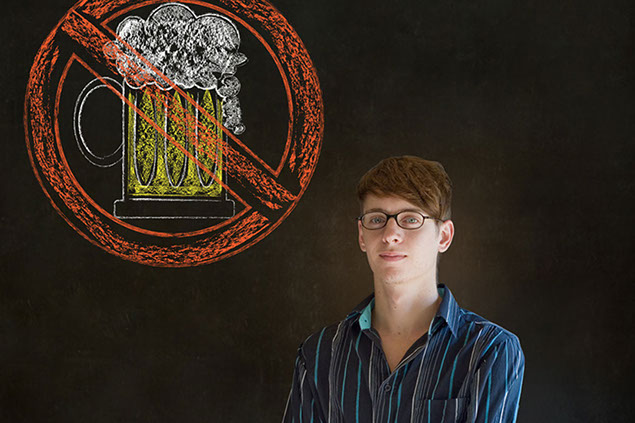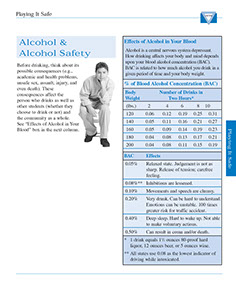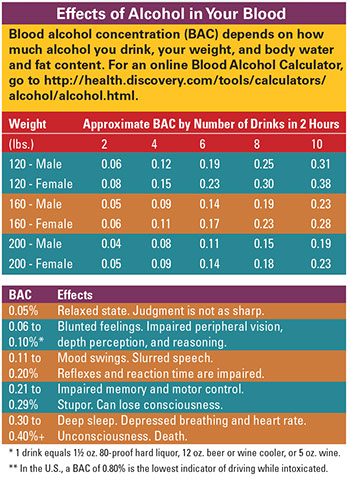CONDITIONS
SYMPTOM CHECKER
Male
Female
Child
Arm, Hand & Shoulder Concerns
Legs & Feet Concerns
Dental & Mouth Concerns
Ear & Nose
Eye Conditions
Head Conditions
Arm, Hand & Shoulder Concerns
Legs & Feet Concerns
Front
Back
Arm, Hand & Shoulder Concerns
Dental & Mouth Concerns
Ear & Nose
Eye Conditions
Head Conditions
Arm, Hand & Shoulder Concerns
Dental & Mouth Concerns
Ear & Nose
Eye Conditions
Head Conditions
Front
Back
Arm, Hand & Shoulder Concerns
Neck Links
Head & Neck Concerns
Arm, Hand & Shoulder Concerns
Neck Links
Head & Neck Concerns
Front
Back
Online Clinic
Wise Healthcare
Alcohol & Alcohol Safety
Print on Demand
RELATED ARTICLES
Before drinking, think about its possible consequences (e.g., academic and health problems, unsafe sex, assault, injury, and even death). These consequences affect the person who drinks as well as other students (whether they choose to drink or not) and the community as a whole.
General Safety Guidelines
Alcohol Poisoning
Call 9-1-1 for one or more of the following signs of alcohol poisoning or combining alcohol and other drugs, such as sedatives or tranquilizers. Act quickly. Alcohol poisoning can be fatal.
• Unconsciousness. This means the person is hard to rouse and can’t be made aware of his or her surroundings. This can be brief, such as with fainting or blacking out. It can put a person into a coma.
• No breathing or slow and shallow breathing. This means 10 or fewer breaths per minute or time lapses of more than 8 seconds between breaths.
• Slow pulse rate (40 or fewer beats per minute).
• Skin that is cold, clammy, and/or pale or blue in color.
{Note: Before emergency care arrives, place the person on his or her side with the knees bent, to prevent choking if he or she vomits. Loosen the person’s clothing around the neck and check the mouth and back of the throat to see that nothing obstructs the person’s breathing. Stay with the person.}
Alcohol Safety Tips
• Choose substance-free housing, if available and desired.
• Be aware and think about the risks and consequences of drinking, including getting arrested, getting sick, contracting an STI, etc. One incident of alcohol use could cause you to do something you will regret for the rest of your life. Alcohol plays a part in most sexual assaults.
• Mixing drinking with driving, drugs, or operating machines can be fatal. Designate a sober driver.
• Not everyone drinks. Be with people who drink non-alcoholic beverages or ones that look like “drinks,” such as non-alcoholic beer in a glass.
• It is better to get medical help for a person who needs it instead of worrying about getting a friend in trouble.
• Drink alcohol only if you want to, and if you do:
– Know your limit and stick to it or don’t drink any alcohol.
– Drink slowly. You are apt to drink less. Have one drink during a party. Take fake sips, if necessary. In reality, anything over two drinks does not increase the feeling of pleasure. Drinking too much leads to being unable to enjoy yourself.
– Eat when you drink. Food helps to slow alcohol absorption.
– Alternate an alcoholic beverage with a non-alcoholic one. Use non-alcohol or reduced alcohol beverages. Dilute distilled beverages. Use more and more mixer and less and less alcohol. After two drinks, your taste buds are dulled and you won’t be able to notice much difference.
– Avoid drinking contests and games.
Resources
Emergency Medical Service (Call 9-1-1) if you suspect alcohol poisoning or a drug overdose
Your school’s Student Health Service, Student Counseling Service, or Alcohol and other Drug Program
Al-Anon/Alateen World Service Office
888.4AL.ANON (425.2666)
Alcoholics Anonymous (AA) World Services
Center for Substance Abuse Treatment (CSAT) National Drug Treatment Referral Routing Service
800.662.HELP (4357)
Narcotics Anonymous (NA)
818.773.9999
National Institute on Alcohol Abuse & Alcoholism (NIAAA)
This website is not meant to substitute for expert medical advice or treatment. Follow your doctor’s or health care provider’s advice if it differs from what is given in this guide.
The American Institute for Preventive Medicine (AIPM) is not responsible for the availability or content of external sites, nor does AIPM endorse them. Also, it is the responsibility of the user to examine the copyright and licensing restrictions of external pages and to secure all necessary permission.
The content on this website is proprietary. You may not modify, copy, reproduce, republish, upload, post, transmit, or distribute, in any manner, the material on the website without the written permission of AIPM.
2021 © American Institute for Preventive Medicine - All Rights Reserved. Disclaimer | www.HealthyLife.com

















































